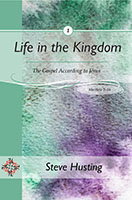Sit comfortably in a quiet place. Breathe in deeply, count 1, then release. Repeat until all stress is gone and you are refreshed.
Is mindfulness pop psychology? My medical (IPO) sent me a slickly designed card with a handy card containing a mindfulness prompt to relieve stress.
There are countless coloring books for adults (in paper and app) with intricate designs where we can color between the lines, and take our minds off our daily problems. Their repetitiveness and simplicity are soothing and calming. Continue reading





